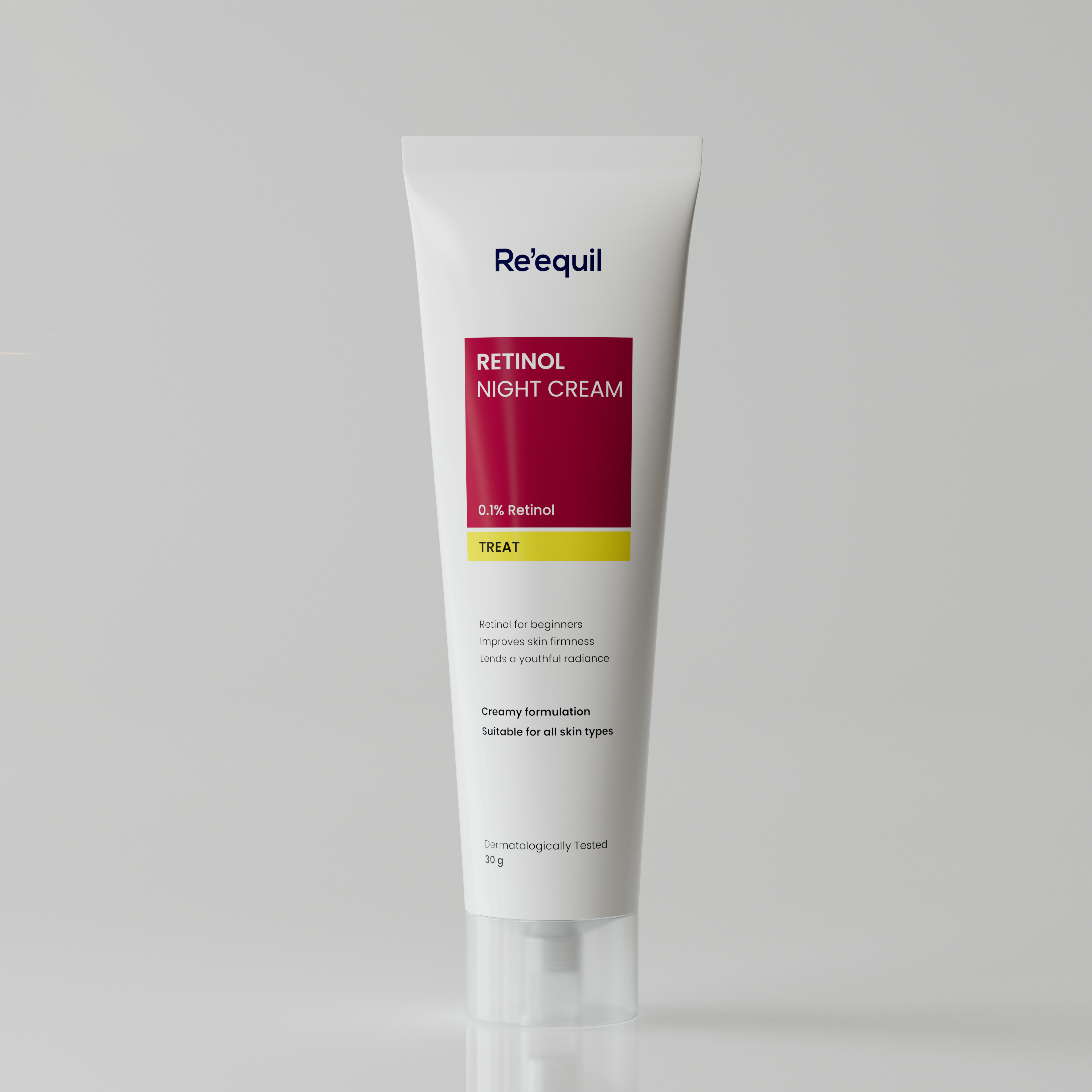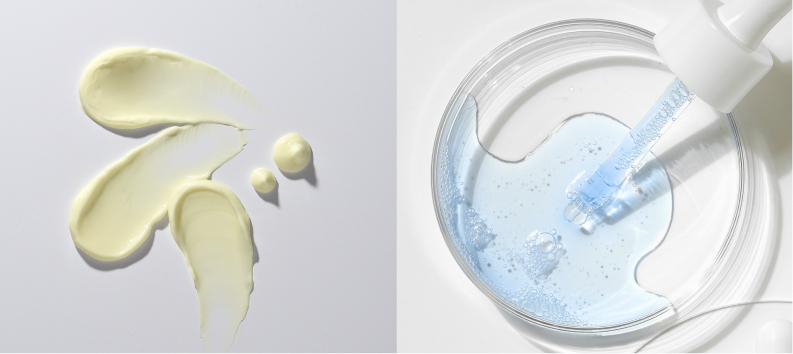Mixing Retinol with hydrating and nourishing skincare ingredients such as Niacinamide can help you reap all the benefits of Retinol while mitigating its side effects.
Niacinamide or nicotinamide provides an additional barrier for your skin, which counteracts potential irritation caused by retinol, according to a 2008 study.
In this article, we will delve into the details of this powerful combination.
Retinol and Niacinamide: A Quick Introduction
Retinol and Niacinamide are active skincare ingredients. Both of them are science-backed ingredients for targeting specific skin concerns such as signs of ageing, hyperpigmentation, and acne. Here is a quick overview of each -
Retinol, Vitamin A Derivative
Retinol is one of the most popular skincare ingredients, available in different concentrations over-the-counter in the form of cream and serum.
It is proven to boost collagen production and fade hyperpigmentation. For example, if your skin concerns are wrinkles, fine lines, and uneven skin tone, Retinol is the right active ingredient for you.
Read - New to Retinol? All Retinol Questions Answered
Advice from Re’equil
Retinol may cause redness, dryness or flaking. So if you are a beginner, make sure to -
- Start with low concentration, such as 0.1%
- Apply Retinol once per week—during the night.
- Use sunscreen during the day to avoid any sun damage.
- Avoid applying Retinol near your eyes, nose and lips.
Read - Common Mistakes People Make While Using Retinol
Niacinamide
Niacinamide, a water-soluble form of vitamin B3, is present in various food sources like meat, fish, and dairy products. In the realm of skincare and cosmetics, a topical variant of Niacinamide is used in products like creams and serums.
What Niacinamide does to your skin -
- Niacinamide is one of the eight essential vitamins crucial for maintaining your overall health.
- Regulates oil production, making it suitable for oily and combination skin (managing excess sebum).
- Reduces the visibility of enlarged pores.
Why is this combination good for your skin?
The combination of Retinol and Niacinamide has no potential side effects.
A 2020 study says that Retinol response is enhanced when it's mixed with Niacinamide.
Moreover, Retinol is a potent ingredient with possible side effects such as irritation and redness; using Retinol with Niacinamide can assist in reducing these adverse effects.
Here are some benefits of using this combination -
- The combination is more effective in addressing acne.
- Reduces hyperpigmentation and encourages a smoother, even skin texture.
- Niacinamide boosts skin tolerance to Retinoic Acid, which is formed when you apply Retinol to your skin. This reduces the chances of experiencing side effects like itching or redness from Retinol.
Using Retinol and Niacinamide together: solving the AM/PM Puzzle
Let's answer this right away: mixing Niacinamide with Retinol is suitable for your nighttime skincare routine.
Here is how you can do it -
- Wash your face with a gentle cleanser.
- Pat your skin dry with a clean towel.
- Apply Niacinamide to your entire face (be it serum or cream/moisturiser), wait for 25 to 30 minutes and then apply Retinol.
- The next day, make sure to apply a broad-spectrum sunscreen.
Please note that the frequency of using this combination may vary. To explain further, frequency of Retinol depends on your previous exposure to it, the concentration you're using, and your specific skin concerns. Whereas, Niacinamide can be applied daily.
Scientific studies on using Retinol and Niacinamide together
There are numerous studies on the combination of Retinol and Niacinamide, whether in the same or separate products.
Here are some highlights -
This study says that using Retinol with Niacinamide effectively improves skin brightness and addresses anti-ageing concerns (wrinkles and fine lines).
25 individuals with mild hyperpigmentation and signs of ageing were enrolled in a 10-week study.
Products used were retinol 0.5%, niacinamide 4.4%, resveratrol 1%, and hexylresorcinol 1.1%.
Participants followed a skincare routine consisting of a cleanser, hydrating serum, moisturizer, and SPF 30.
By the fourth week, notable enhancements were observed in hyperpigmentation and overall skin texture.
By the tenth week, all individuals reported no itching or redness.
This study states that the combination of Retinol and Niacinamide is very effective for Acne.
The participants withdrew all topical products 14 days before the study.
They were given topical preparation containing Nicotinamide 4% (Niacinamide), Retinol, and 7-dehydrocholesterol in the form of Moisturizer.
The combination was applied morning and evening twice per day for 45 days.
94% of the participants showed improvements, while 6% showed no results. However, no participant reported adverse effects.
Wrapping up
Using Retinol and Niacinamide together is a scientifically validated approach. This combination effectively addresses diverse skin concerns, demonstrating heightened efficacy in treating photoaged skin, mitigating irritation, and fostering a more uniform skin texture.
The prescribed nighttime application procedure and favourable results from research underscore the significance of incorporating this combination into a skincare routine.






























